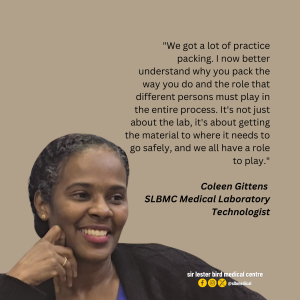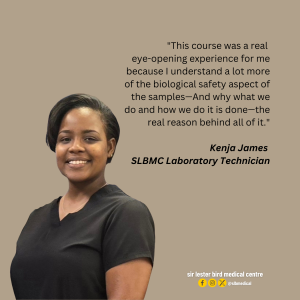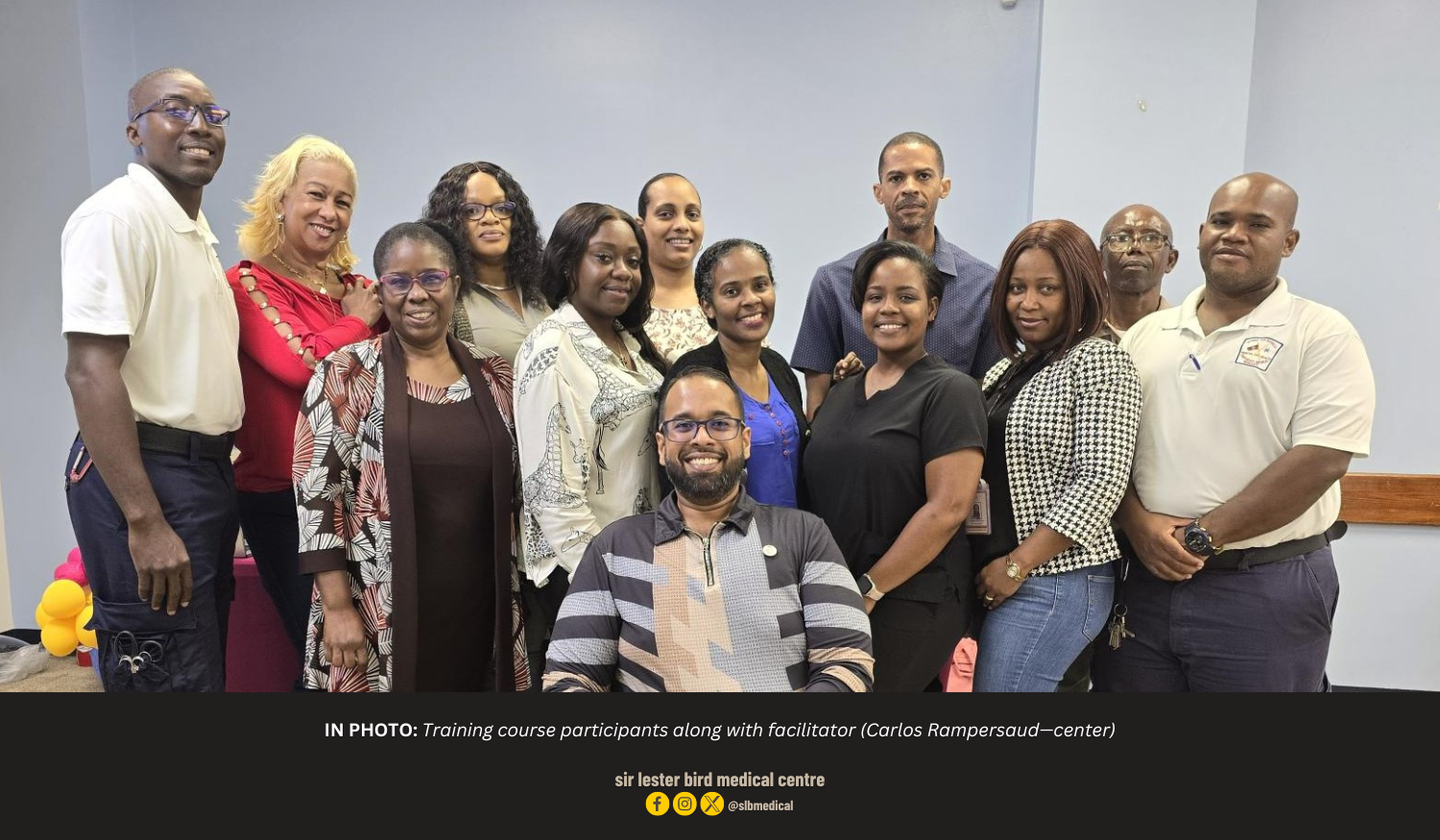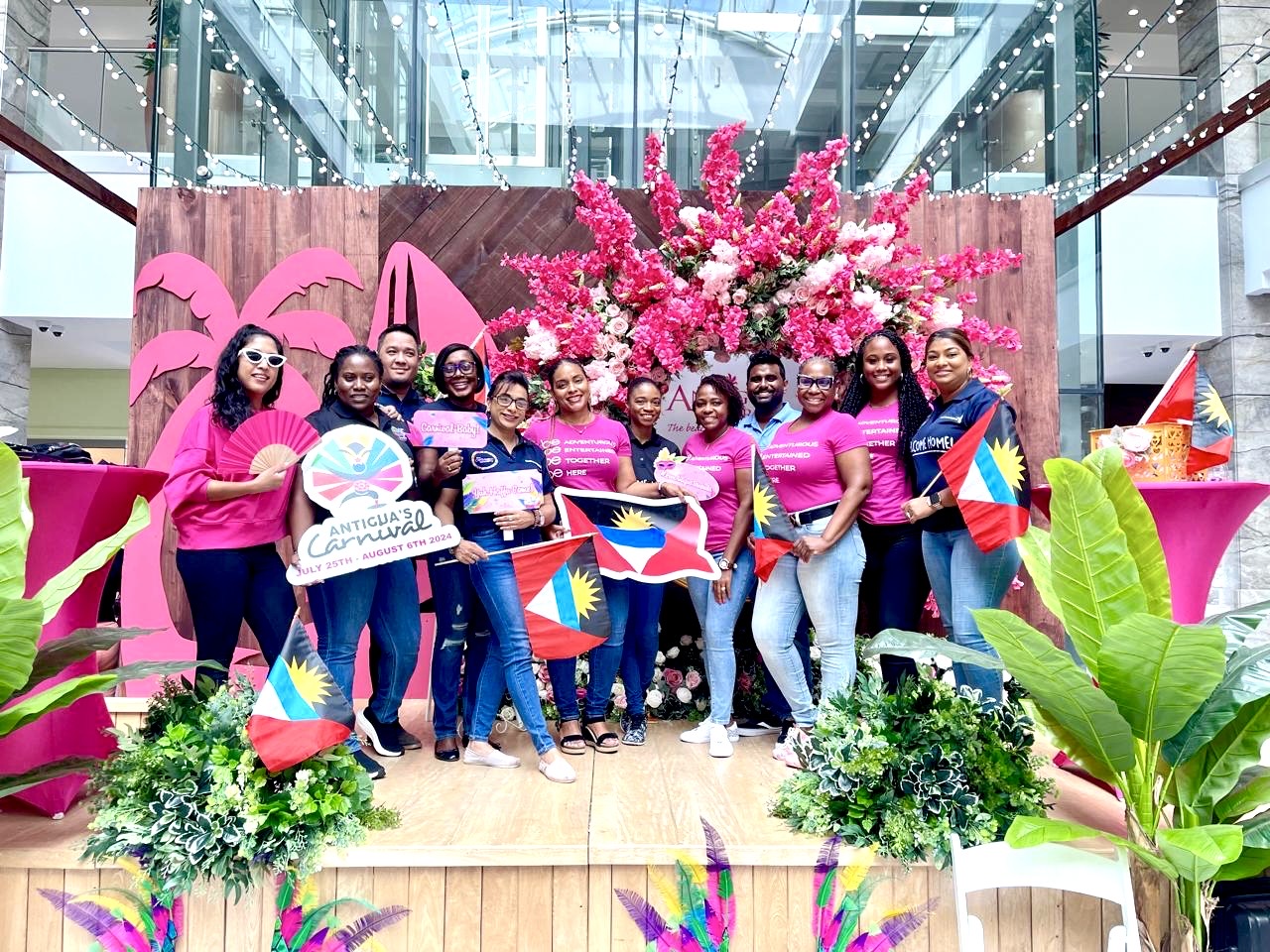Laboratory technicians have successfully completed a training programme that
focused on the safe way to ship infectious substances.
The course was designed for SLBMC laboratory staff and other laboratory
professionals in Antigua and Barbuda to strengthen capacity and identify health
security risks efficiently. Personnel attending the training also included staff from
the Emergency Medical Services (EMS) who are also involved in biomedical
material transport.
The Caribbean Public Health Agency (CARPHA) collaborated with the Ministry
of Health and Sir Lester Bird Medical Centre (SLBMC) in organizing the course.
This training was also important for the laboratory staff to attain certification in
accordance with International Air Transport Association (IATA) and Dangerous
Goods Regulations.
Barbara Joseph, SLBMC’s Laboratory Service and Quality Manager noted the
importance of the training not just for SLBMC but for the entire country;These
trainings will enhance Antigua and Barbuda’s capacity to ship biological samples
to reference laboratories in other countries for further testing and characterization.
As a result, we’re able to help speed up research and better serve patients.
The Ministry of Health will continue to work with partner agencies to ensure
shipping of infectious substance trainings continue in accordance with evolving
health issues globally so that the country’s laboratory services are strengthened,

 commented Chief Medical Officer, Dr. Kamaria DeCastro.
commented Chief Medical Officer, Dr. Kamaria DeCastro.
Carlos Rampersaud, CARPHA Biorisk Officer and facilitator of the training,
stressed the importance of safe shipping through strict regulations to ensure that
shippers are trained to safely ship biological specimens. It is important for us to
have infectious substances shipped according to the standards, especially given the
Cricket World Cup as we have many persons visiting from over 25 countries to the
region—And as such we must remain vigilant during this time to ensure if we have
any outbreaks during our mass gatherings that we are prepared to ship during an
emergency. The shipping of infectious substances and understanding of the
relevant biosafety practices are of great importance as well as the training
opportunities that will continue to be offered to Antigua post the Cricket World
Cup. We hope that the knowledge gained from this training will be shared among
staff.
Training course participants expressed their gratitude for the training received.
Coleen Gittens, SLBMC Medical Laboratory Technologist said, We got a lot of
practice packing. I now better understand why you pack the way you do and the
role that different persons must play in the entire process. It’s not just about the lab,
it’s about getting the material to where it needs to go safely, and we all have a role
to play.
Kenja James, Laboratory Technician at SLBMC expressed a similar sentiment,
This course was a real eye-opening experience for me because I understand a lot
more of the biological safety aspect of the samples—And why what we do and
how we do it is done—the real reason behind all of it.
The training course syllabus included a mixture of both theoretical and practical
elements. Initial face-to-face training and certification is followed by online
training every two years to recertify and remain valid.



